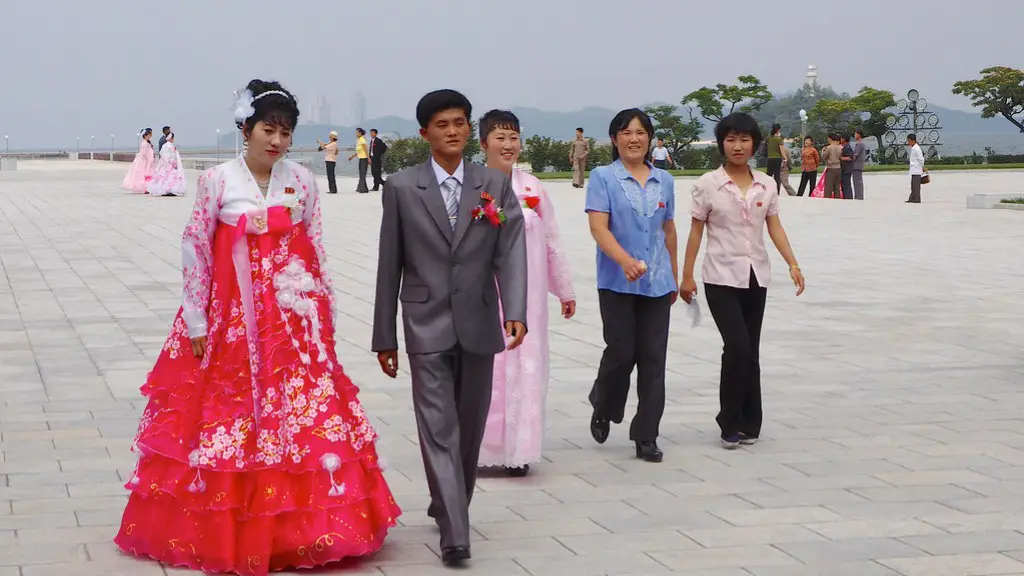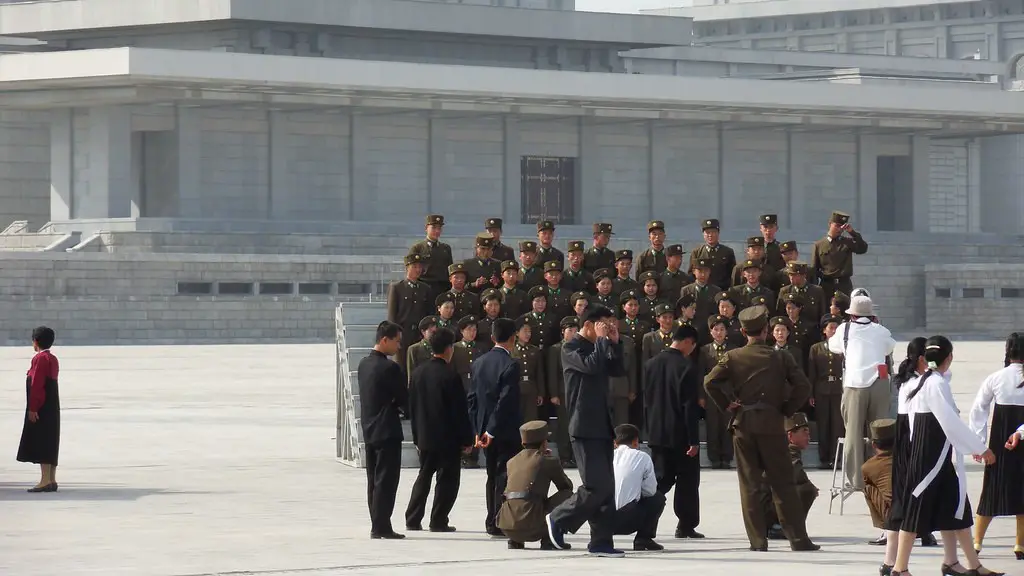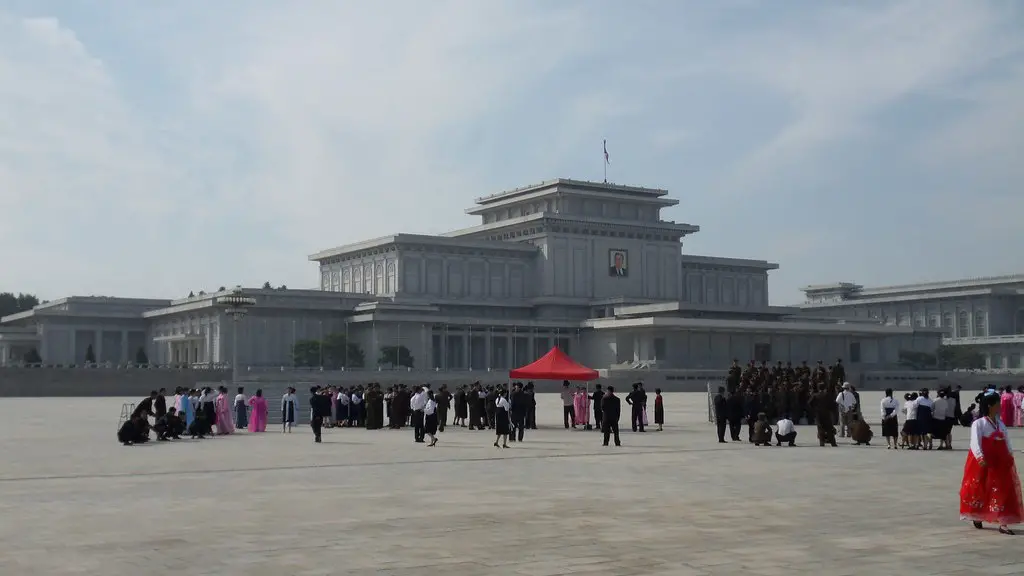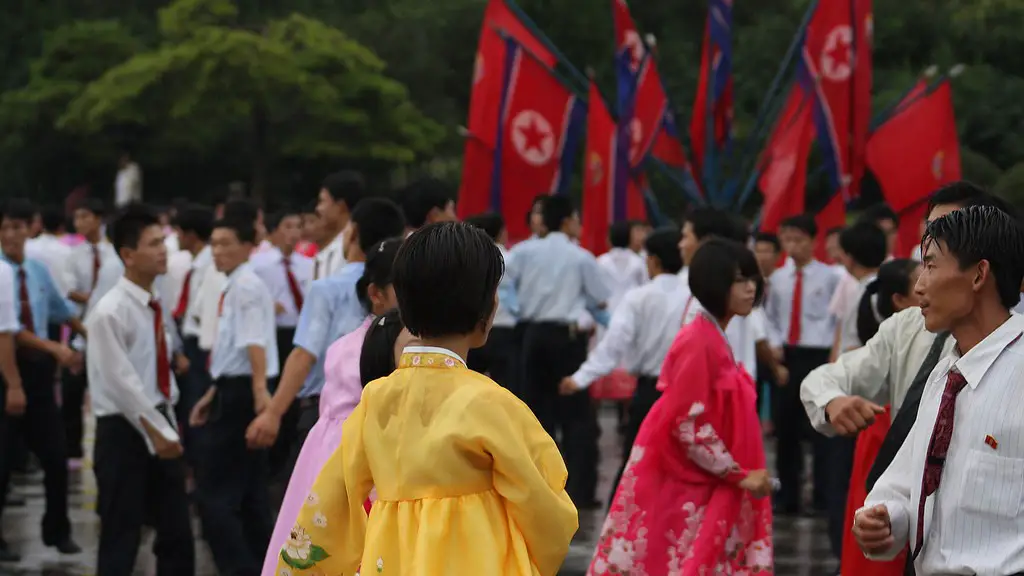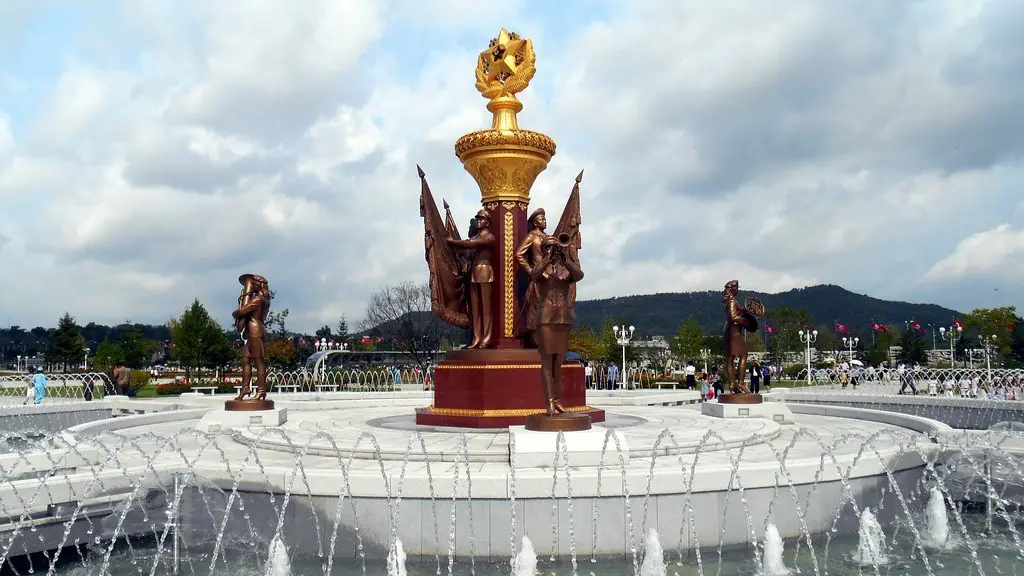Since its separation in 1948, North and South Korea have remained divided nations. North Korea is ruled by Kim Jong Un, a dictator with a brutal track record of human rights abuses, while South Korea is a democracy and prosperous country. The two Koreas remain vastly different in terms of economy, politics, and culture. So the question remains, which of the two is worse?
When considering the economy, North Korea is far behind South Korea. The GDP of South Korea is six times that of North Korea’s, despite the heavily industrialized North boasting great mining and mineral reserves. Economic sanctions on North Korea have caused the country to remain isolated from the rest of the world’s financial markets. This lack of foreign investments, coupled with its reliance on the export of coal, minerals, and textiles, has resulted in the country’s inability to properly compete with South Korea for resources and investment.
In terms of politics, both North and South Korea are considered dictatorships, with North Korea’s being particularly oppressive. Kim Jong Un has implemented a totalitarian rule, closely supervised by the North Korean military, in order to maintain control over the country. On the other hand, South Korea is a democracy and freedom of speech, assembly, and the press are protected by the government. While the government of North Korea is oppressive, it is not as oppressive as the international sanctions imposed by the United Nations, which have crippled the economy and made life harder for North Korean citizens.
Culturally, South Korea is one of the most progressive countries in Asia. It has a thriving arts and entertainment industry, with modern cities and top universities. By comparison, North Korea is a relatively isolated country with a primitive, strictly regimented culture. North Koreans are taught from a young age to obey the government, and freedom of expression is heavily censored. Additionally, human rights violations, including the imprisonment of political dissidents, are all too common in North Korea.
In summary, South Korea is far ahead of North Korea in terms of economy and politics, while North Korea lags behind in terms of cultural development. North Korea’s oppressive government and lack of freedom of expression make it the worse of the two countries. However, it should be noted that the international sanctions imposed on North Korea, coupled with its isolation from the rest of the world, have made it hard for its citizens to live a normal life.
North Korea’s Human Rights Violations in Focus
When it comes to human rights violations, North Korea is notorious for its high number and severity of abuses against its citizens. According to a report from Human Rights Watch, North Korean citizens are denied basic human rights such as the freedom of expression, assembly and association, and freedom of movement. The government also detains and imprisons people without due process, often subjecting them to harsh punishments and even torture. Political dissent is also harshly punished, and individuals suspected of disloyalty to the state risk imprisonment, arbitrary detainment, and even execution)
Moreover, North Koreans are denied freedom of information and access to independent media. The Pyongyang government strictly monitors and controls the media, banning any information that goes against the government’s views. North Koreans are not allowed to travel abroad, and even if they are allowed to do so, they are strictly supervised and monitored by the state. Lastly, despite recent economic developments, poverty and hunger remain a major problem for North Korean citizens. This is due to a combination of economic sanctions imposed by the United States and the government’s lack of investment in social programs.
Overall, North Korea’s track record on human rights is one of the worst in the world. It has violated the rights of its citizens in some of the most egregious ways, from torture and detention, to restrictions on freedom of expression, movement and access to information.
Gender Inequality in North Korea
Gender inequality is another pressing issue in North Korea, just like in many other countries. According to the United Nations’ 2018 World Population Prospects report, the gender gap in North Korea is the worst in the world. This means that women in North Korea have far fewer rights and opportunities than men.
According to the report, women are more likely to face poverty, be denied access to education, and be discriminated against in the labour market. In addition, women are not given the same economic opportunities as men, meaning that their earning potential is much lower.
Moreover, women face more severe discrimination in areas such as domestic violence, access to health care, and freedom of movement. Domestic violence is considered an intimate family matter, and women are often not afforded the same level of protection as men. Women in North Korea also face higher risks of sexual violence due to their lack of protection.
Finally, women in North Korea face a higher risk of abduction. According to a recent U.N. report, North Korea is one of the few countries where the abduction of women is still rampant. This practice is used to recruit women into the military or prostitution, or to be sent abroad for forced labor.
General Lack of Human Rights in North Korea
Apart from gender inequality, North Korea’s human rights record is also universally considered one of the worst in the world. The state does not recognize or protect basic human rights such as the freedom to express opinions, assemble, associate, practice religion and receive a fair trial in the courts. Political dissenters and religious believers are particularly vulnerable and risk unjust imprisonment, torture and even execution.
In addition to its lack of respect for basic human rights, North Korea also implements policies aimed at isolating its citizens from the rest of the world. North Koreans are not allowed to travel abroad without permission, and North Korean citizens who defect to another country risk facing severe punishments upon their return. North Koreans are also not allowed to use the internet and access to foreign media and information is limited.
Finally, the lack of a free and independent press in North Korea means that information is closely supervised and controlled by the government. This means that North Koreans have little access to accurate news and information, and are unable to form their own opinions about their situation and the outside world.
North Korean Refugee Crisis
Another consequence of North Korea’s oppressive regime and lack of basic human rights is a large-scale refugee crisis. According to estimates, there are about 30,000 North Korean refugees living in South Korea. This number does not include the thousands who have been forced to resettle in other countries, such as China, the United States and Japan, due to the repressive nature of the regime in Pyongyang.
These refugees face a range of issues when they resettle in a new country, as they are often unable to speak the language and have limited financial resources. Additionally, they often face discrimination, as they are unable to integrate and assimilate into their new society.
Finally, North Korean refugees face the risk of forcible repatriation, as the North Korean government is known to use threats and intimidation to pressure refugees into returning. This can have dire consequences for the refugee, as they are likely to face harsh punishments and even torture upon their return.
International Pressure on North Korea
In recent years, international pressure on North Korea has intensified as the international community seeks to hold the country accountable for its human rights abuses. The United Nations has adopted several resolutions condemning the Kim Jong Un regime, and the United States has imposed increasingly strict economic sanctions.
However, the international community has yet to take direct action to stop the human rights violations in North Korea. In addition, it is unclear how effective the economic sanctions are, as the country’s elite are still able to access resources and bypass the sanctions.
Moreover, it is important to recognize that North Korea’s human rights violations are a result of the regime’s military dictatorship, and so any effort to address the issue must include a focus on eliminating the regime’s grip on power. Thus, the international community must take a more proactive approach in dealing with the North Korean government if they are to ensure that its citizens are not subjected to further human rights abuses.
International Engagement with North Korea
Despite the repression of human rights in North Korea, the international community has been somewhat reluctant to engage with the country. This reluctance is driven by a number of factors, such as North Korea’s nuclear weapons program, its belligerent attitude towards Japan and South Korea, and its human rights violations.
However, if the international community is to make any progress in terms of ameliorating the human rights situation in North Korea, then it must adopt a more constructive approach. This includes engaging with North Korea in an effort to open up dialogue and encourage progress on human rights.
Furthermore, it is important to recognize that North Korea has a vested interest in opening up to the international community, as it will allow the regime to access vital sources of capital and resources. Thus, if the international community is willing to engage in dialogue with North Korea, then there is a strong chance that the country will become more open and willing to address the human rights issues facing its citizens.
Conclusion
In conclusion, both North and South Korea are vastly different countries. South Korea is far ahead in terms of economic development, politics and cultural development, while North Korea’s oppressive regime and lack of basic human rights make it the worse of the two. The North Korean regime is responsible for a broad range of human rights violations, including gender inequality, a lack of freedom of expression, and a refugee crisis caused by its repressive policies. If the international community is to make any progress in terms of ameliorating the human rights situation in North Korea, then it must engage in a constructive dialogue with North Korea and encourage progress on human rights.
